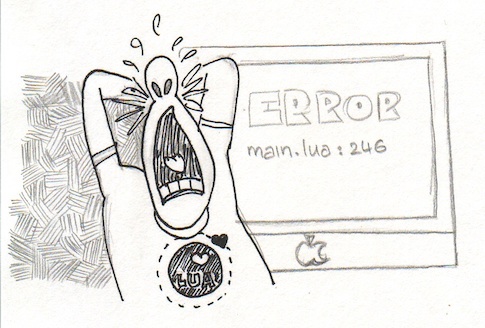Google is your friend, this is the most common feeling, in a way it is as over the years, it is the source of all information. Maybe for me, growing up in a non-google era and relying on a printed compiled/collated sources then also called (User Manuals) that outlined a lot of things, Google has been very good but I would still rather a collation that has everything together with the relevant bits than the whole whiz-bang. So when I was looking up Lua stacks, there were two things that happened, I found nothing that helped me with what I wanted or the information was so much that I could not read it as I was interested in a specific portion of that information. If you are like me and would like to know about a specific topic and Google for more detailed information read on. If you are from those that would like a very detailed overview or think that there are enough articles on this topic, please by all means don’t bother yourself reading on. Read More

Where there is code, there will be bugs… Not the winged variety (though many developers do get wings from all of the energy drink they might consume). Here is a simple technique on using error checking with parameters passed to a function Read More
IF there are a series of conditions, most developers are tempted to use a series of if..then statements which can work, but in terms of extensibility and CPU cycles, this might not be a good way. This article would look at how tables can be used. Read More
One of the most important features required by developers is the ability to position the display objects, after all the most simple way of providing non-static objects is moving the object by altering it’s x and y position. Read More
If you have worked with C, javascript or similar languages, you must have definitely encountered the ‘switch’ or ‘Select Case’ commands which do not seem to be present in Lua and often miss it while developing.
Read More
The first step towards developing with Lua is getting Lua. If you read about the history of Lua, you will find that Lua is quite portable and available for most of the platforms. It is available as an interactive shell where you can run your Lua code interactively or as a set of C API’s that you can include into your own program and allowing for running Lua scripts and exposing your code to be scripted using Lua.
Read More





